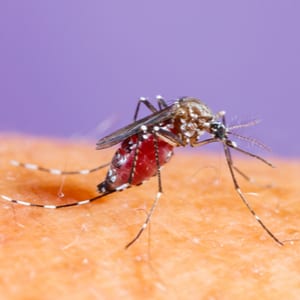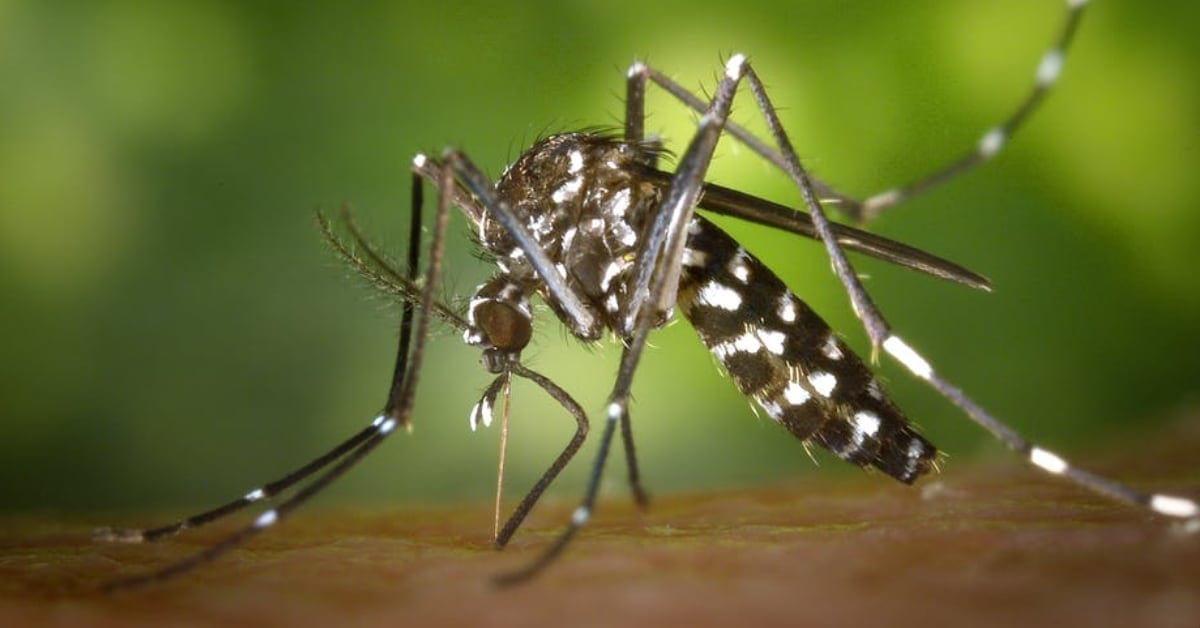Did You Know There Are Several Types of Mosquitoes in New Jersey That Are Ready to Bite?
Mosquitoes are more than just a nuisance. These pests carry all sorts of microbes, from Leishmania to the West Nile virus. Sometimes, their bites lead to lifelong diseases.
New Jersey’s mosquito season in New Jersey is typically between April and October, however, with temperature being a factor it can start as early as March and go into November.
Preventive measures may or may not work, depending on the types of mosquitoes you’re dealing with. Some species are pretty much harmless and easy to get rid of, while others can pose serious health risks.
New Jersey is home to a few dozen mosquito species, including the Asian Tiger, Aedes albopictus, and others. Here’s what you should know about the most common types of mosquitoes in New jersey so you can protect yourself and your family.
Cattail Mosquitoes
The cattail mosquito, or Coquillettidia perturbans, may carry the Eastern Equine Encephalitis virus. As one of the few mosquito species that needs aquatic vegetation to breathe, it attaches to sedges, cattails, and other plants.
Adult specimens prefer forested habits and tend to be most active during the early evening hours. Sometimes, they can be found in shaded areas. Females are particularly aggressive.
Cattail mosquitoes are difficult to control with traditional larvicides. The best way to stop them from growing and spreading is to remove excessive cattail growth.
Asian Tiger Mosquito

Aedes albopictus, or the Asian tiger mosquito, thrives in warm, wet environments. Adult specimens have black bodies with white stripes and measure around 0.2 inches. They lay eggs just above the water surface and may carry the West Nile virus, yellow fever, encephalitis, and other illnesses.
Clinical evidence suggests that Aedes albopictus may also transmit the Zika virus, which is linked to birth defects. Currently, there are no medicines or vaccines for this infection.
The protect yourself, dispose of birdbaths, flowerpots, and other sources of standing water around your home. Wear protective clothing and use an EPA-approved insect repellent when spending time outdoors.
In case of an infestation, reach out to a residential pest control company to assess the problem and recommend the best course of action.
White-Footed Woods Mosquitoes
The white-footed woods mosquito, or Psorophora ferox, doesn’t pose the same dangers as other species. However, it’s extremely common and can have multiple generations per year. It also tends to be aggressive toward humans, causing painful bites.
This mosquito species can be found in New Jersey, as well as much of North and South America. In rare cases, it may transmit the Western Nile and Venezuelan equine encephalitis viruses.
To protect yourself, wear long sleeves and pants during outdoor activities. Avoid hunting, fishing, or camping at dawn and dusk when these insects are active.
New Jersey’s Mosquito Population Is Steadily Growing
There are dozens of other types of mosquitoes in New Jersey, and they all pose some level of health hazards. Many of these mosquitoes can transmit viruses from one person to another. When they feed on an infected person with a virus than bite another person, they can transmit the disease, which can lead to lifelong disabilities or even death.
Mosquitoes can also disrupt your sleep and everyday activities. Camping, fishing, and family gatherings may turn into a nightmare. As you already know, insect repellents are not always effective.
Don’t take unnecessary risks. Our New Jersey mosquito control team uses an environmentally conscious approach to keep your home safe. Contact us today to discuss your needs!

